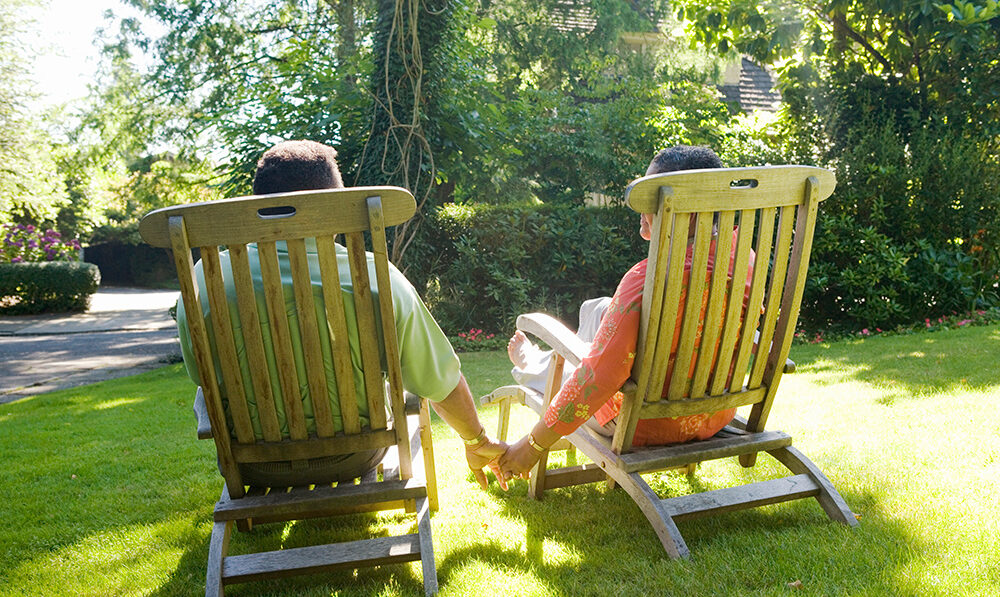Whether you are looking to see the world, try something new, visit family or check a destination off the bucket list-summer travel is fun, exciting and often highly anticipated. But for caregivers providing dementia care to loved ones with memory loss, planning a summer vacation can be daunting because the added layer of ensuring health and safety. However, summer vacation is possible and is so very worth it!
“A dementia diagnosis doesn’t mean the end of shared experiences,” said Carol Ditman, Senior Executive Director of Programming at Country Meadows Retirement Communities and Certified Dementia Live Coach. “In this season of life, travel is not about where you go or what you do-it’s about reconnecting to the people, places and things that matter to you and your family.”
With advance planning, adjusted expectations and a positive mindset, a memorable and meaningful experience can be had by all and actually benefit the individual’s dementia care plan. According to a recent study, “tourism experiences offer elements of anticipation and planning, both stimulate brain function. Exercise is often an important component to tourism experiences, and is frequently included in dementia intervention plans.”
Here are some tips to keep in mind as you make plans for a summer getaway while still prioritizing the dementia care needs of your travel partner:
Acknowledge the elephant on the trip
The reality is that dementia can feel like the third wheel that no one asked for but that doesn’t mean the trips and the fun have to stop. Making airlines, hotels and restaurants aware, ensures that accommodations can be achieved in all of the logistics.
Determine the type of vacation based on the stage of dementia and types of dementia care required
The growing trend of staycations or day trips just might be the best thing for individuals with late-stage dementia. These familiar locations provide a change of scenery while still having comfort of knowing that at the end of the day, home and primary medical providers are close by. If the travel involves a long flight, consider extending the trip for longer than just one week so a sense of normalcy can be created at the destination.
Packing and Planning
- Looking for a dementia-friendly destination and activities: A 2024 National Geographic article shared some of the best Dementia-friendly tourism spots and travel experiences such as visiting art museums, taking walks on hiking trails at nature centers. Country Meadows Retirement Communities’ resource center also provides tips for dining out with a loved one with dementia.
- Questioning whether the trip is possible or worth it: This is a normal feeling, however, there is still so much life that can be lived and as the caregiver, you are still making core memories with your family member or friend. Consult the loved one’s physician while planning the trip so you are aware of what their dementia care needs are or issues that could arise.
- Starting the packing list: Make sure to include medications, medical documents, identification cars, and comfort items. For example, bring items from the bedside table to replicate in the hotel or vacation house, travel with familiar snacks or have a playlist of favorite, calming songs ready.
Keep a flexible itinerary
Adjust expectations of timelines and activities and schedule extra time for everything that is planned. This may not be the fast-passed tourist trip that your loved one did prior to their diagnosis, but can still be enjoyed. Taking it slow and going with the flow of moods and desires can minimize the chance of confusion or behaviors. Additionally, routines are important for individuals experiencing dementia. Sticking to the same meal and bedtimes they are used to will be helpful in the transition to a different destination.
Stay safe
In all things, do what is safe and best for the entire travel group. Sticking together if large crowds are encountered is important. Avoid leaving the loved one in unfamiliar places. Consider investing in a GPS tracking or medical alert device prior to travel and keep a physical copy of emergency contacts accessible throughout the duration of the trip. Identification is also important. Be sure he or she is carrying an ID and a card with the caregiver’s name and contact information. It could also be helpful to take a photo of the loved one each morning to show how the loved one is dressed each day, should they become separated.
For more tips on dementia care while traveling with a loved one and resources on memory support programs, visit Countrymeadows.com/resources.



